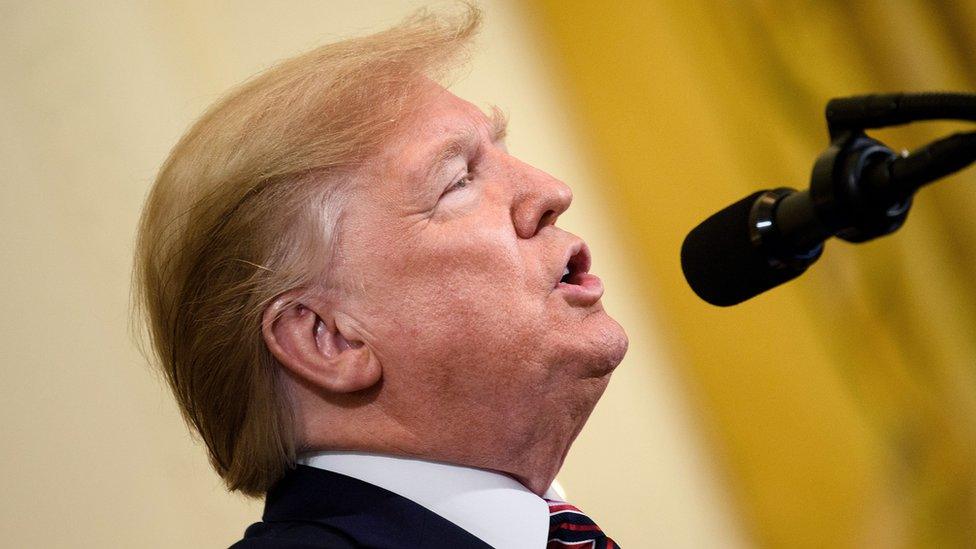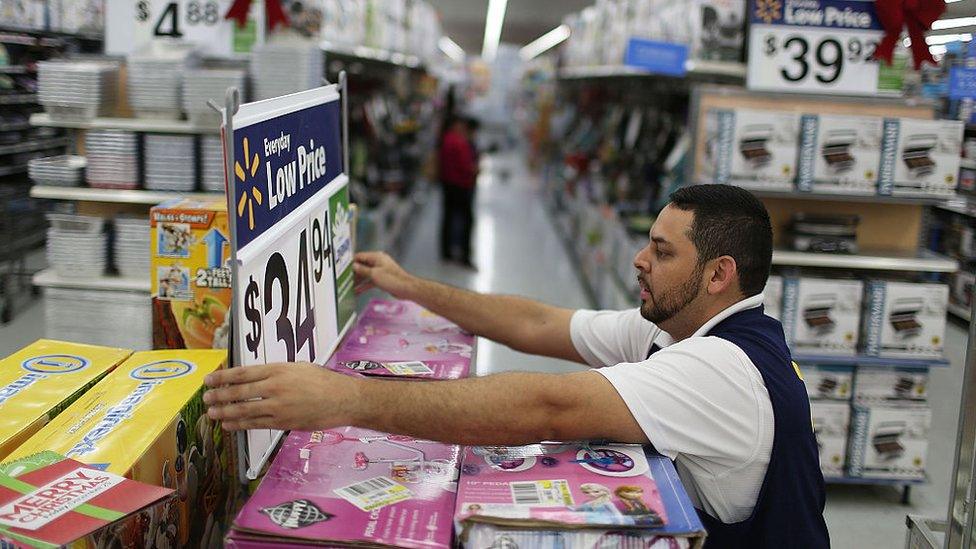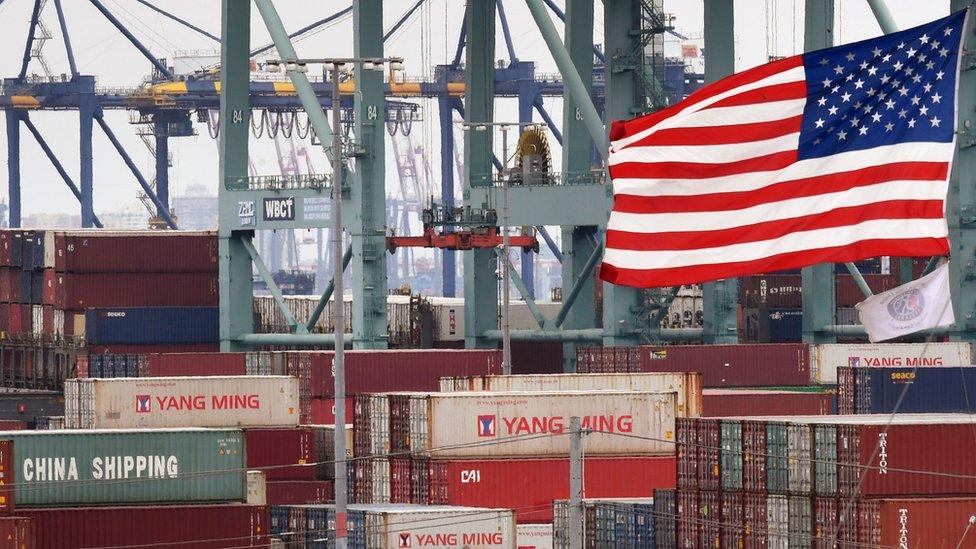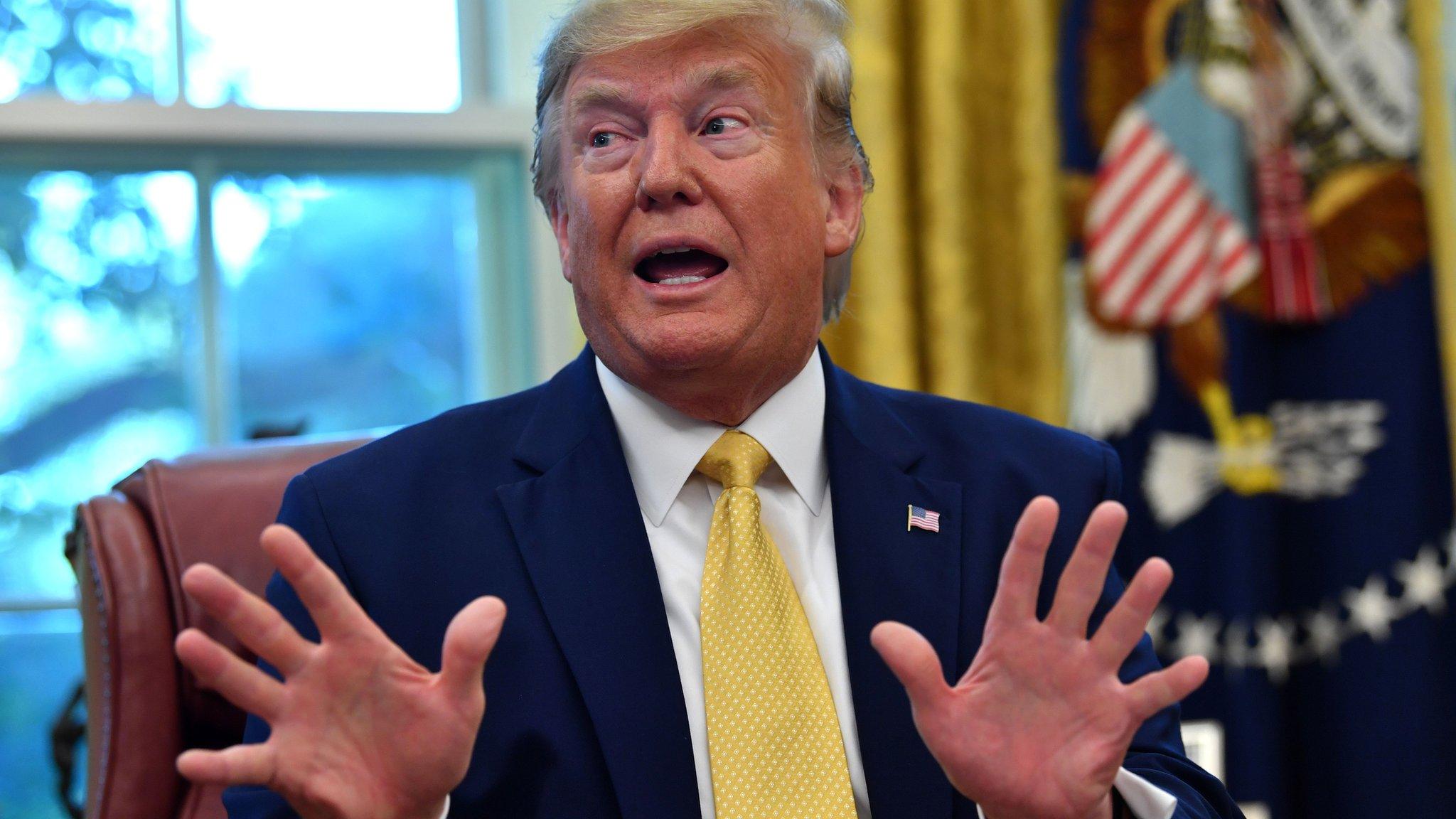Trump 'signs off' on deal to pause US-China trade war
- Published

Asian stock markets rose on Friday as the US and China moved toward striking a trade deal to avert a new round of tariffs.
The deal could be announced later in the day, after US President Donald Trump reportedly signed off on the terms.
Washington is said to have agreed to remove some tariffs, while Beijing would boost purchases of US farm goods.
However, many of the more difficult issues are still to be addressed.
Optimism surrounding a trade deal pushed Asian markets higher, with Japan's Nikkei 225 index rising 2.3% while Hong Kong's Hang Seng put on 2%. The Shanghai Composite added 1.2%.
Earlier, US markets also gained ground with the S&P 500 and the Nasdaq closing at fresh record highs.
"It's a good starting point," Chamber of Commerce head of international affairs Myron Brilliant told broadcaster CNBC after meeting with White House officials.
A deal would deliver a victory to Mr Trump, who is under political pressure, with debate on his impeachment underway in the US Congress.
He tweeted on Thursday that the US and China were "very" close to an agreement.
"They want it and so do we!" he wrote.
Allow X content?
This article contains content provided by X. We ask for your permission before anything is loaded, as they may be using cookies and other technologies. You may want to read X’s cookie policy, external and privacy policy, external before accepting. To view this content choose ‘accept and continue’.
Previous truces have collapsed and without a formal announcement or presentation of a written agreement, many remained wary.
The US reportedly offered to halve tariff rates on about $350bn (£260bn) worth of Chinese goods, some of which had climbed as high as 25%.
However, the deal is not expected to address many of the more difficult issues that triggered the fight, like China's subsidies for certain industries.
"This should NOT be described as a trade agreement," Jennifer Hillman, a senior fellow at the Council on Foreign Relations and a former trade official, wrote on Twitter.
"It is a purchase and sale agreement that does virtually nothing to address substantive concerns of US (+rest of the world) with China's trade practices."
Allow X content?
This article contains content provided by X. We ask for your permission before anything is loaded, as they may be using cookies and other technologies. You may want to read X’s cookie policy, external and privacy policy, external before accepting. To view this content choose ‘accept and continue’.
Mr Trump has repeatedly declared progress toward a deal that would end the trade war, which has seen tariffs imposed on more than $450bn worth of US-China trade and weighed on the global economy.
In October, he announced that the two sides had agreed to terms for a "Phase One" deal, but negotiations dragged on.
Without progress, the US had threatened to impose tariffs on more than $150bn worth of Chinese exports on 15 December.
Unlike earlier rounds of tariffs, this one was slated to fall largely on everyday items, including smartphones, children's books, footwear and clothing, heightening the economic stakes, since the US economy is driven by consumer spending.


Optimism about a trade deal may be running high, but it's worth casting your mind back to why Mr Trump started this trade war with China in the first place.
It was about levelling the playing field, he declared during his campaign, and to stop Beijing's unfair trade practices.
The US said China unfairly subsidises its firms, and steals intellectual property from American companies which gives China an unfair advantage.
It's unclear whether these issues will be in the final text of any agreement. Which means that Mr Trump's trade war has yet to achieve what it set out to.
Meanwhile, economic growth forecasts around the world have been cut, companies have had to shift their supply chains out of China, and businesses have struggled to make hiring and expansion decisions in the face of trade war uncertainty.
Washington's advantage over China has always been the threat of more tariffs. Suspending or rolling them back could be giving away the only leverage Mr Trump has, risking a deal with actual substance in favour of a quick and easy win.

- Published12 December 2019

- Published16 January 2020

- Published11 October 2019
